The story of a same-sex couple in Armenia: happy, but misunderstood by many
The story of a same-sex couple in Armenia
Romik
Romik is from a country where poets converse with God, and they talk with him about love. Romik is from a country where people sometimes even kill for the sake of love. Iran is a country of boundless beauty, rich in culture and diversity. That’s where Romik Danial was born. He is a prominent representative of the Armenian community in Iran, an active young man and an honorary graduate of a religious studies programme.
“I’ve felt different from others since childhood, since I was 10. I felt like a stranger among the other boys. I never engaged in their conversations and I didn’t share their interests. I felt more comfortable around girls, but I realized that I was a stranger to them too.
“Sometimes it seemed to me that I was on the wrong kind of planet, or I got here by mistake. For example, suddenly the skies opened and I fell down like an angel, one of a kind. I didn’t know what it was, but I realized that I was different from my fellow human beings,” says Romik.
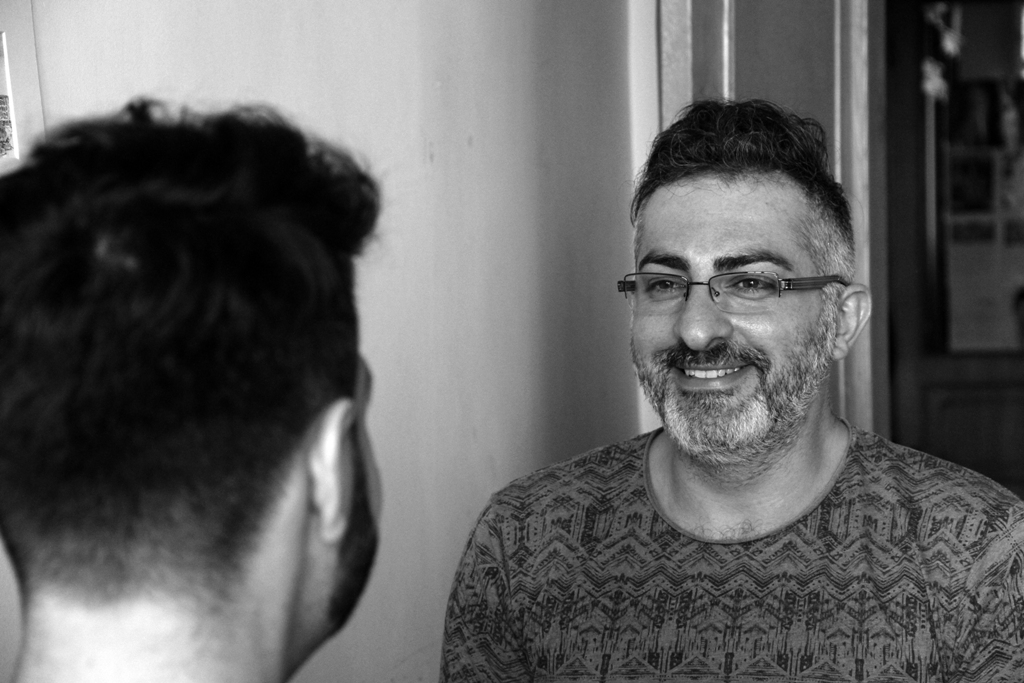
It took him years to find people ‘of his own kind’. Romik tried to find the missing puzzle piece to his personality in community work, in church, at school, among his friends, but all his efforts were in vain. He simply didn’t know what exactly he was looking for.
“I first heard the word ‘gay’ from my mother. I remember that she was watching a TV series on a satellite channel, and there was a same-sex couple there. I suddenly realized that those people’s love was quite understandable and close to me. And my mother immediately said: ‘Oh, look at those gays! How do you like that?’ And my father wondered who the ‘gays’ were.
“My mother answered that ‘a gay’ was a man who loved another man. That day I realized that I belonged to that very group. That was exactly how I could describe my feelings. But, at the same time, I noticed my parents’ extremely negative attitude and I thought it was wrong,” said Romik.
Romik was seeking answers to questions amidst a lack of access to the internet and limited information. Sometimes he could hear his acquaintances gossiping about him. He didn’t fully understand who he was, but he hated those characteristics. So, he did his best to prove the opposite.
“It’s just unbearable to be a stranger, to be different. It’s terrible when you clearly understand that your life and thoughts aren’t actually yours, that you are split in two and don’t understand your essence. You are living your life at the behest of your family, community and traditions. It just ruins you. You always want to run away, but you don’t know where because you don’t know why.
“After agonizing much, I finally found peace of mind when I first travelled to Armenia in 2000. Surprisingly, it was a homeland where I had never been before. It was a foreign country, but as soon as I crossed the border, I was overwhelmed by a feeling of peace, a feeling of being at home. At that moment I was happy, tranquil and safe,” says Romik.
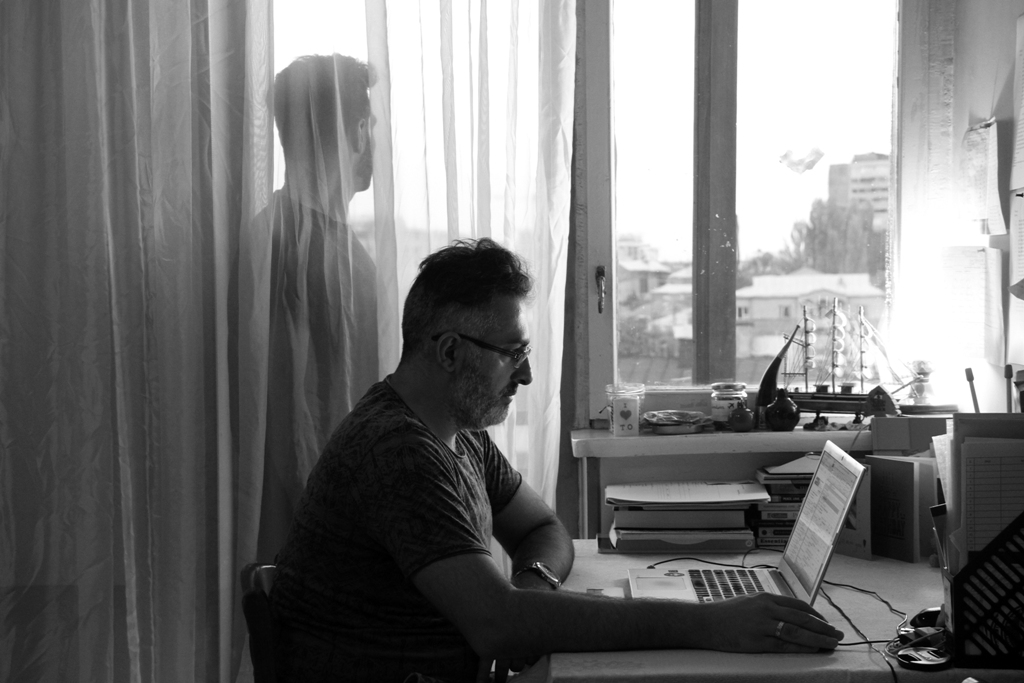
When Romik returned home two weeks later, he was already thinking of moving to Armenia. This journey marked the beginning of a new stage of self-discovery for him. Romik was putting together, piece by piece, his life, thoughts and feelings. He finally decided that he would no longer live a lie:
“I’d been seeking answers to many questions in church. I’d been trying to find them there until I heard a hate speech in church itself. It put everything inside me upside down: it turned out that the church I believed in didn’t accept and trust me. It generated more new questions, rather than offered any answers. I was asking God: If You created me, then what’s the purpose of this book which is against me? Where does the mistake lie – in me or in it? If you created me in your own image, then how could I be a mistake?
“Those questions really bothered me. I quit church in order to find the answers to those questions myself. I started reading sacred books of different religions. Here is one interesting quote from the Quran: ‘Allah is closer to you than your jugular vein’. Thus, having gotten familiar with different religious teachings, I realized that God was within me, thus I couldn’t be a mistake. The imaginary, artificial line between right and wrong had disappeared. I exist, and I am who I am,” he said.
Now Romik believes in God, but without any mediators. He lives in harmony with himself, and with the one who is closer than the jugular vein. He now also knows the most important principle –‘do not judge’.
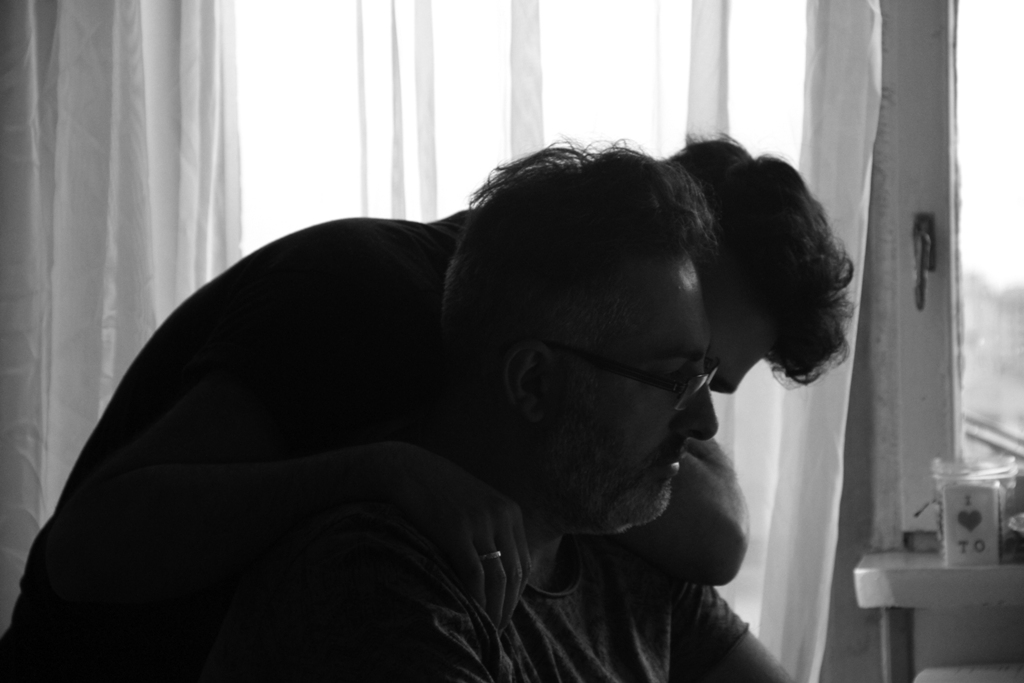
Romik made his final decision a few years later in 2011. He told his family members he was moving to Armenia because he didn’t want to live a double life, and moreover, to live someone else’s life. People like him are executed in Iran.
“By that time I’d already been engaged to a young lady, seeking to create a traditional family. Later on, I realized that it was not only wrong, but pointless. No one would ever have been happy in that family. I had no right to make another person feel unhappy. Living a lie became unbearable for me. I believe that it’s the greatest tragedy of our community, that people consciously live in a lie, not even trying to fight against it.
“People often don’t even understand that there is no such thing as a half-truth, that it’s the same lie. People prefer to think that they don’t lie, but rather conceal the truth or ‘wrap’ it in beautifully crafted words. It’s not my thing. I just can’t do it that way. So, I moved to Armenia, determined never to lie about myself,” says Romik.
He quickly found a job in Armenia. He met up with members of the LGBT-community and realized that there were other people with the same experience and fears, and that he wasn’t an angel who dropped from the open skies. He realized that he was just a human being, ordinary, different and special like all other people on earth. He met many people, but after some time he started choosing his environment more carefully. Romik excluded those from his environment who didn’t accept his lifestyle. Sometimes it happened that others decided to distance themselves from him. Anyway, Romik has never changed his approach, that is, to live in harmony with himself rather than with the community.
“I’m sure that homosexuals’ relatives, especially their parents, know the truth about them. They often conceal it, pretending that everything is fine, everything is ‘normal’, like with other people. But that doesn’t change anything. Such people do exist, and just pretending that it’s not so won’t make them disappear. Nothing will change except that there will be one more lie,” says Romik.
Narek
“I was the last person to learn who I was. It was unfair. My schoolmates called me ‘faggot’, but I didn’t even know what it was. I just understood that I was different, one of a kind,” says Narek.
Narek spent 24 years of his life in absolute solitude and self-denial. It takes a great deal of courage to accept something that is unacceptable to others. There were stages of struggles and disappointments constantly replacing each other, with Narek’s life somewhere in the midst of it.
“Although I had some information, and I could compare it and understand who I was, there were numerous internal barriers that I found hard to overcome. I denied myself, but, at the same time, I didn’t want to live according to customs, since I understood that it was self-inflicted violence.
“Now, as I recall that period, I feel pity for myself. No matter how strange it may seem, it requires a great deal of energy just to live an ordinary life: to play a role at work, at home, in the family, to struggle, to accept or deny oneself. This permanent stress is exhausting for a human being,” says Narek.
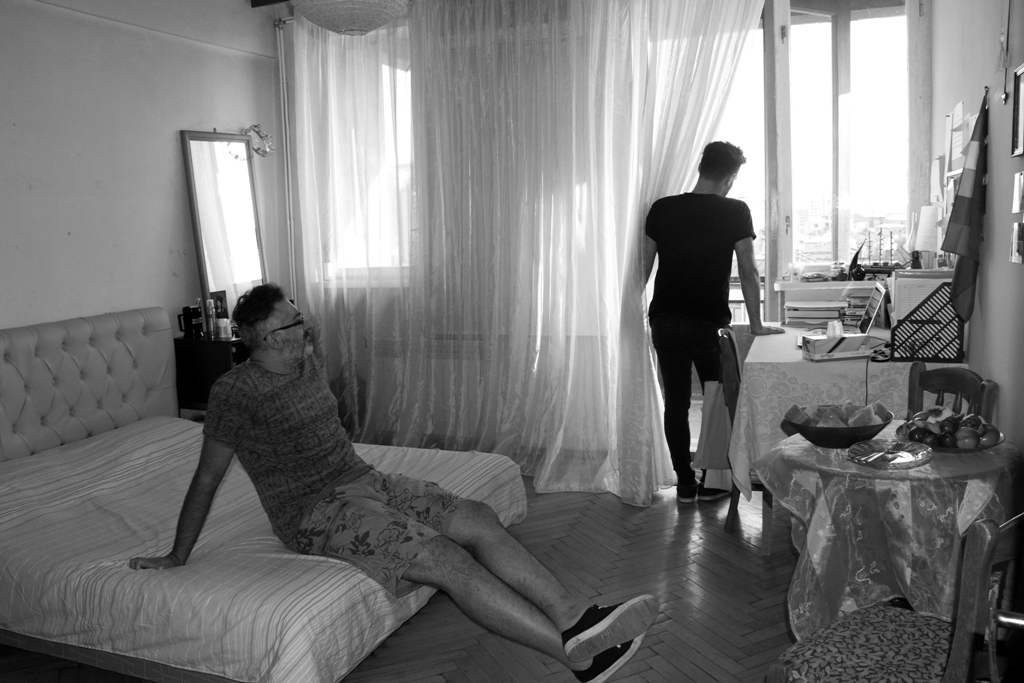
Narek accepted himself only when he turned 24, but he couldn’t come to terms with his essence. Throughout that period he fell in love and went through a great heartbreak:
“It turned out that I fell in love with a married man. He also loved me. Our relationship lasted for eight months. I was physically and psychologically addicted to the person I loved. However, the feeling of remorse, concerns for his wife and family, as well as realization of the fact that I was doing something wrong, finally got the best of it. Then I decided that love wasn’t meant for me, and I even reconciled myself to that idea,” said Narek.
His reticence deprived Narek of a chance to communicate with other members of the community and meet new people. He was facing his problems alone. It was then that he finally decided never to marry in his life. However, this solitude was unbearable sometimes:
“It’s not just a matter of private life. I was absolutely alone in every sense of the word: there wasn’t anyone like me who I knew and could just talk to. I really didn’t know a single homosexual in Armenia. In this case your life turns into a continuous chain of struggles, lies, self-defense, self-abnegation, and all of a sudden you come to accept it,” says Narek.
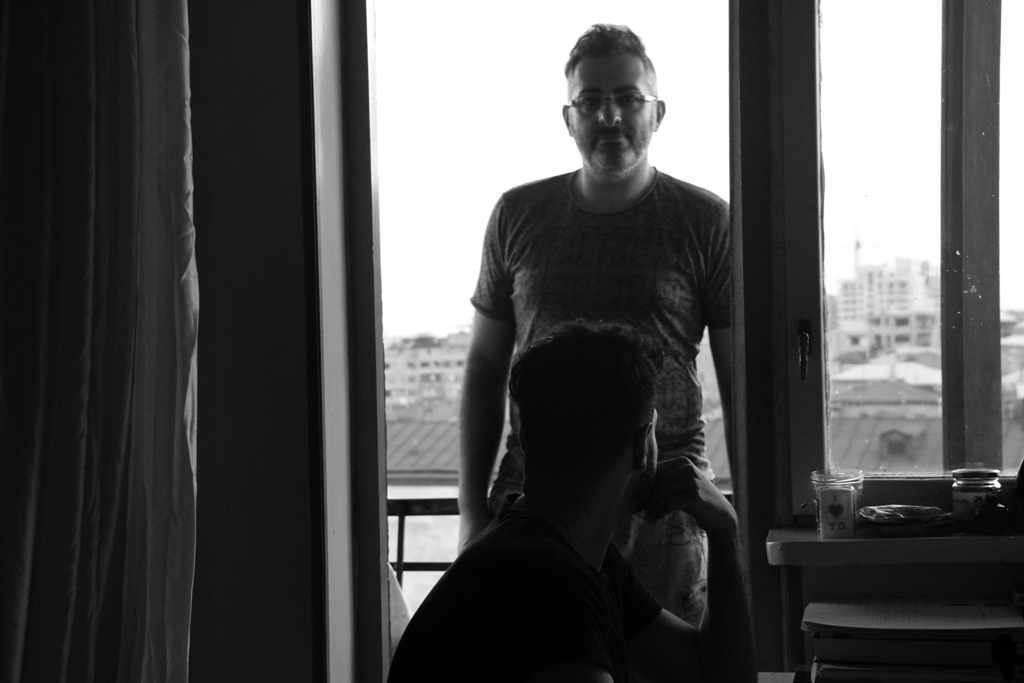
Once, in yet another fit of desperation, Narek visited a dating website. As a man with low self-esteem, he didn’t dare write first, including to Romik, though he’d liked his photo for quite a while. Narek hoped for a chance and a stroke of good fortune.
Now, as you are here
The last desperate attempt to find each other became a salvation for Romik and Narek. They were dating each other for a couple of weeks. Then they fell in love with each other and started a family in several weeks. However, before that, they had to overcome numerous barriers and fears:
“Now I’m happy, that’s for sure. But I’m also more cautious now. In fact, I started facing more discrimination when I got engaged in a serious, long-term relationship with Narek. When you are responsible solely for yourself, you are calmer and more courageous. But when you realize that the life of your loved one depends on you, you are more careful, calculating and think over your actions.
“In the beginning of our relationship, it usually took us quite long to decide where to go out for dinner so as to avoid discrimination. Anyway, it was worth it! It was worth struggling for what we have now,” says Romik.
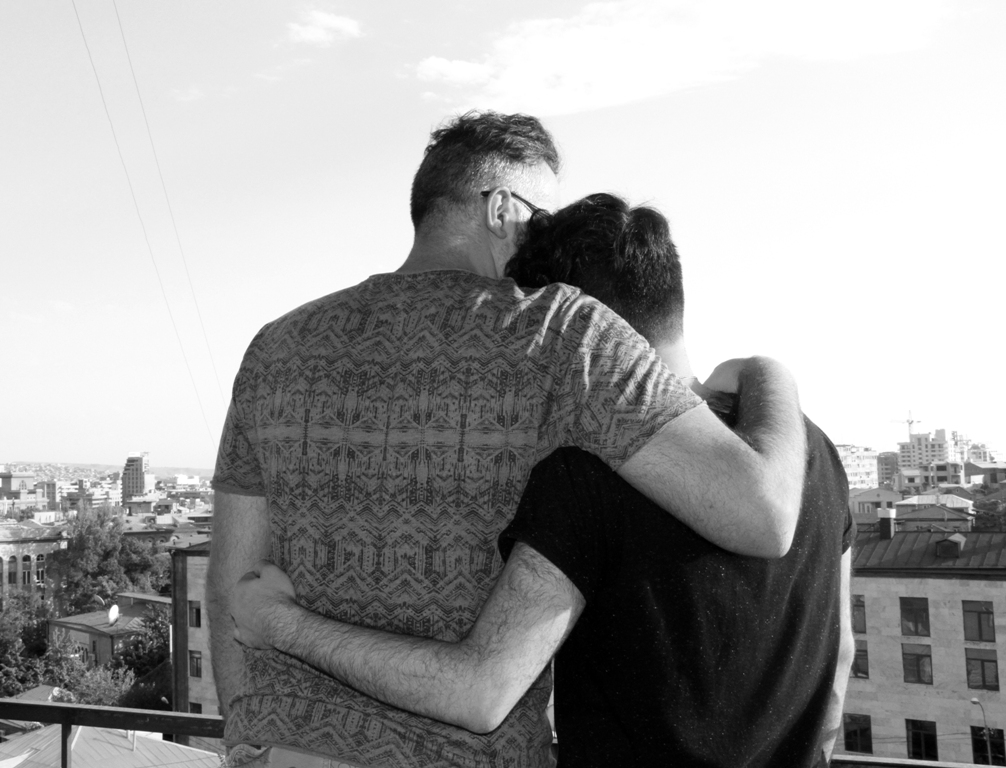
All those failed past attempts, suppressed emotions, and, finally, that strange feeling of happiness, made them feel scared, especially Narek, who had never been a member of the community and who had never heard or seen ‘people like him’:
“We first met each other at the screening of the film ‘Listen to Me’. I didn’t know anybody there, but suddenly I heard stories which were so similar to those from my life, and I saw the problems that I was facing myself. I had some mixed, incomprehensible feelings. Afterwards, when it turned out that we were supposed to go to a café after the movie, I really wanted to run away from that place out of fear, because I didn’t know what would happen next. Now, I’m very happy that I failed to escape,” says Narek.
All those disappointments that Narek experienced in the past were confronted with Romik’s clear-cut vision of happiness and family life. Things that Narek considered unreasonably daring even to dream about soon became a reality:
“Now I can afford the luxury of thinking about the future of my family, even about children. It’s really a luxury, because I had never had high expectations for my future in the first 24 years of my life. Besides, Romik made me stronger as a person. Now I live in harmony with myself, and that’s very important,” says Narek.
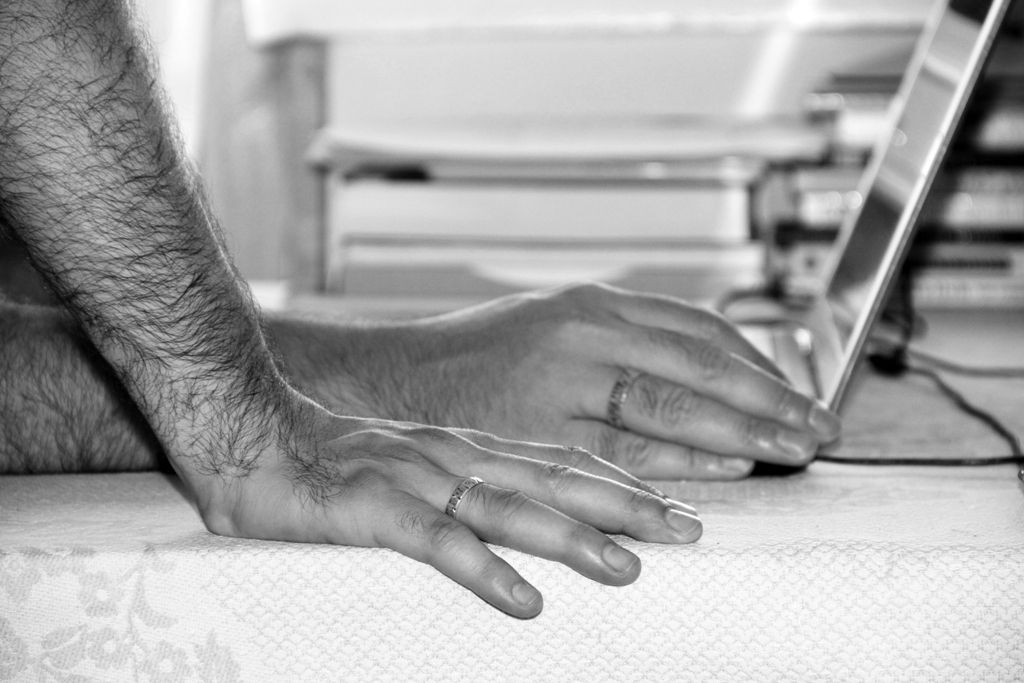
The couple speaks freely about their engagement. Yet, they are cautious, because Narek’s parents are still unaware of their son’s orientation. Romik doesn’t think it makes sense to disclose the truth at this stage:
“It’s not that I don’t want Narek’s parents to know about us – of course I do. I just know that they will never support us. I can imagine all the risks associated with it. I told my parents about my orientation just to stop them pressuring me to getting married. Although they had to accept it after a certain period of time, there were still too many negative emotions.
“Now, when Narek thinks about it, I just ask him: what will it change? Nothing. No matter whether they accept it or not, everything will remain as it is. But our family will have to go through yet another difficult period. I don’t see any point doing it at this stage. And also, I’m sure that deep down Narek’s mother knows everything because her son experienced a 180-degree change right in front of her eyes. Her son is happy and that cannot be overlooked,” says Romik.
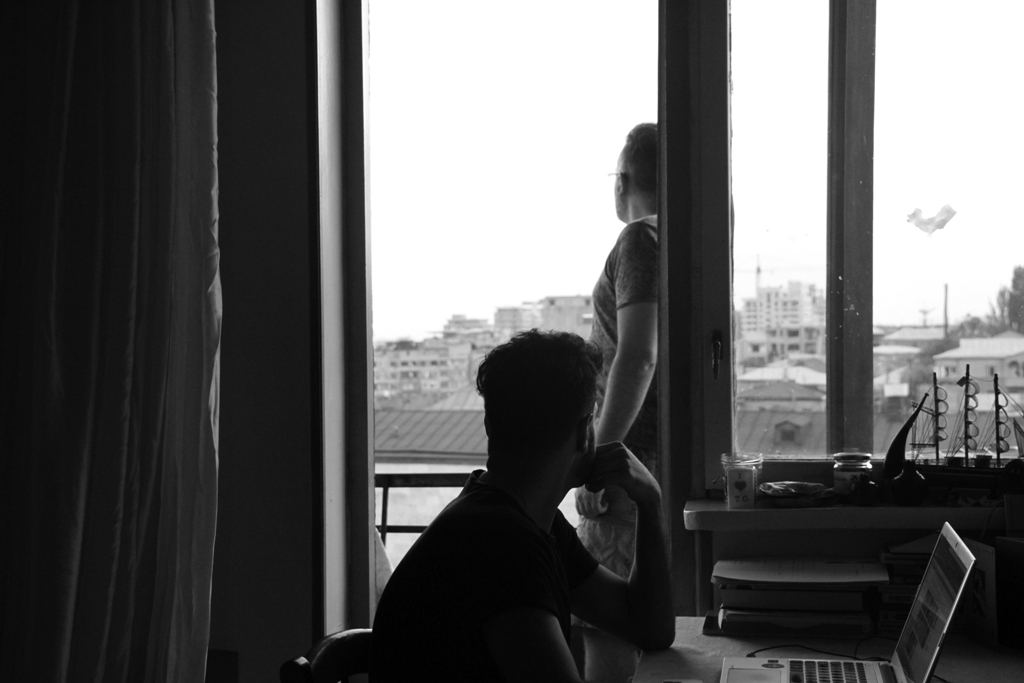
Today, Romik and Narek dream about having children, which, as Romik put it, will become a sign of their victory:
“I imagine our children some 20 years later, when they will become the next link in the chain of struggle, thus consolidating this triumph. I wish they could say ‘yes, we’ve been raised in a same-sex family, but that hasn’t prevented us from becoming successful, educated and happy people’. In Armenia, people are sitting in the trenches of their own way of thinking, shooting at each other from different angles. Things can’t be changed this way. I wish our children could raise the ‘white flag’ between those trenches,” says Romik Danial.
Toponyms and terminology used in the publication, and views, opinions and strategies they contain do not necessarily reflect the views and opinions of JAMnews or any employees thereof. JAMnews reserves the right to delete comments it considers to be offensive, or otherwise unacceptable.


















